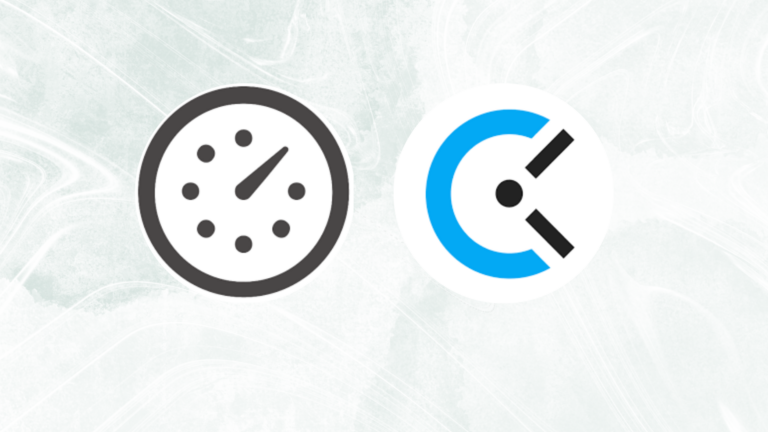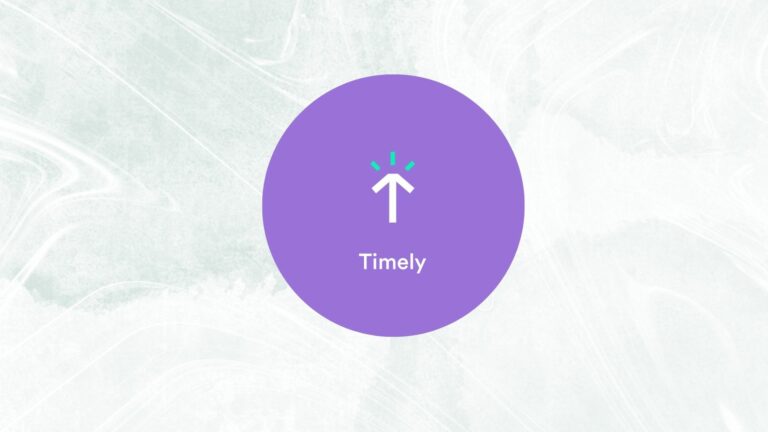Have you ever encountered that individual who appears to have everything under control? They excel in their professional endeavors, maintain fulfilling personal relationships, consistently prioritize physical fitness, and are seemingly always ready for any situation that arises.
Although one might speculate that they have made some sort of pact with the devil, it is more probable that they have simply become exceptionally skilled at being proactive.
Table of contents
What does it mean to be proactive?
Being proactive involves self-initiated, future-focused, and change-oriented behaviors” means that proactive people tend to anticipate problems or issues to design plans that avoid negative outcomes or prepare for positive results
Here are some examples of proactive behavior:
- Responding to emails and phone calls promptly
- Addressing requests and complaints swiftly
- Having a to-do list and prioritizing tasks
- Developing efficiency methods
- Managing your calendar
Proactive vs Reactive
Being proactive entails assuming control over various aspects of your life, work, and relationships. It involves actively creating opportunities instead of waiting for them to come your way. Proactive individuals prioritize shaping their own destinies and taking accountability for their achievements. Conversely, being reactive involves merely responding to events as they occur.
Proactive people often possess the foresight to anticipate problems or challenges and develop plans to avoid negative outcomes or capitalize on positive ones. They take the initiative and make preparations to tackle potential issues. Their focus lies in the future and they embrace change. As a result, proactive individuals generally experience greater stability and security in their lives, along with reduced stress levels.
On the other hand, reactive individuals tend to wait until circumstances have deteriorated before they take action, forcing them to scramble to address the aftermath. Reactivity entails responding to situations as they unfold. As a consequence, reactive individuals tend to have less stability and security in their lives and often experience higher levels of stress compared to their proactive counterparts.
Will your reaction be proactive or reactive?
If you’re not sure, here are some additional questions to ask yourself that can help you figure it out:
- Do you have any kind of long-term plan?
- Do you take an active or passive role at work and in life?
- Do you make a decision only when you absolutely have to?
What are the 5 P’s of being proactive?
Chrissy Scivicque, a career expert, defines the 5 P’s of being proactive in her book The Proactive Professional: How to Stop Playing Catch Up and Start Getting Ahead at Work. Each P of the 5 P’s of being proactive represents an action verb. The 5 P’s are:
- Predict
- Prevent
- Plan
- Participate
- Perform.
Being proactive is a valuable trait that can help you achieve success in your personal and professional life. It can help you anticipate problems and design plans that avoid negative outcomes or prepare for positive results. It can also help you take control of your life and take responsibility for your success.
A. Predict
Being proactive involves forward thinking and considering potential future outcomes. It requires developing foresight, which is the ability to accurately anticipate forthcoming events. The aim is to be prepared for any kind of problem that may arise.
The initial step in mastering the art of prediction is to observe patterns or regularities that typically occur. However, there is a caveat. While certain strategies or approaches may have proven successful in the past, it is crucial to recognize that past results do not always guarantee future outcomes. It is important to maintain awareness that circumstances can change, and unexpected situations can arise. Thus, it is necessary to allow for flexibility and adaptability.
As Chrissy suggests in her book, it is advisable to create multiple scenarios for how events might unfold. By doing so, you can be well-equipped to take appropriate action, regardless of the circumstances that transpire. This approach enables you to be proactive and responsive in the face of uncertainty.
B. Prevent
Once you have envisioned the potential obstacles that may arise in the future, consider proactive measures to address them before they escalate into significant problems.
Avoid adopting a passive mindset and allowing fear to hinder your ability to face challenges. Instead, take charge of your life and adopt a more proactive and engaged approach.
As Chrissy emphasizes, it is essential to confront challenges directly. Therefore, strive to prevent issues from escalating into chaos by taking early action. By identifying and addressing potential problems in advance, you can mitigate their impact and maintain control over the situation.
C. Plan
Planning is a crucial element in adopting a proactive mindset.
To effectively plan, it is necessary to shift your focus from the present moment to the future. By setting a future goal, you can strategically outline the necessary steps to achieve it. Consider what actions you can take today to pave the way for positive outcomes down the line.
Planning involves careful consideration of the sequence of actions required to reach your desired destination. It encompasses both short-term and long-term perspectives, enabling you to identify the most effective strategies and allocate resources accordingly. By proactively planning your path, you increase the likelihood of attaining the desired results in the future.
D. Participate
If you stay aside and just observe what’s happening, you won’t be able to solve anything. In order to find a solution, you must get involved.
For instance, participate in the discussion with your colleagues, your partner, family members, or friends. Basically, in any aspect of your life, it’s much better to be an active participant than a passive observer.
And remember — everyone’s contribution is equally important when making a decision or solving a problem.
E. Perform
The last stage of embracing a proactive mindset involves taking tangible action and demonstrating your willingness to put in the necessary work.
It is crucial to overcome the habit of procrastination and make definitive decisions. Once you have made a decision, commit to it wholeheartedly.
To be proactive, you cannot afford to hesitate or be indecisive. Take the time to plan your path towards achieving your goals, carefully considering all potential outcomes. Then, with confidence, take that final step forward.
A proactive individual does not act on impulse. They meticulously assess and contemplate their actions, recognizing the weight of their choices. Above all, they understand and embrace the responsibility they have for their own decisions.
By actively performing the necessary actions aligned with your goals, you demonstrate your commitment to being proactive and taking control of your own success.
How to be more proactive at work
We’ve already learned that proactive people aren’t the ones doing the latter.
To learn more about how you can be more proactive at work and achieve your goals, check out the tips we’ve provided for you.
1. Organize your time better
When you take control of your time, you’ll be able to plan your activities and make sure your time is spent in a way that increases the likelihood of achieving the results you want.
Tackle can significantly improve your work organization by providing valuable tools and features. Firstly, Tackle offers a task management system that allows you to create, prioritize, and track tasks effectively. You can easily break down complex projects into smaller, manageable tasks, set deadlines, and assign responsibilities to team members. This helps you stay organized and ensures that nothing falls through the cracks.
Furthermore, Tackle’s integrations allow seamless teamwork across multiple platforms. You can create shared task lists, delegate tasks to colleagues, and track progress in real-time. This fosters transparency, enhances communication, and promotes efficient collaboration among team members.
2. Communicate effectively with your colleagues
Effective communication is a crucial component of personal and professional success. When you and your colleagues communicate well, you enhance the likelihood of achieving positive outcomes both individually and for the organization as a whole.
According to research on developing effective communication skills, it involves active listening to your colleagues, expressing your own opinions, and being receptive to feedback, including constructive criticism. This type of communication fosters a proactive work environment.
By promptly sharing your perspectives on relevant matters, you can prevent miscommunication and potentially contribute valuable insights to ongoing projects. Similarly, when you receive constructive criticism, approaching it with an open mind and seeking clarification allows you to make necessary improvements in a timely manner and successfully accomplish tasks.
3. Set SMART goals
Setting and working towards career goals is essential, but it’s not enough to simply have goals in mind. To ensure successful goal achievement, it’s important to set SMART goals. SMART stands for Specific, Measurable, Attainable, Relevant, and Time-bound.
- Specific: Clearly define your goals, making them well-defined and specific.
- Measurable: Establish criteria or milestones to track and measure your progress toward your goals.
- Attainable: Ensure that your goals are realistically achievable, taking into account the necessary tools and skills you possess.
- Relevant: Align your goals with your personal or organizational priorities to ensure their importance and relevance.
- Time-bound: Set clear deadlines for your goals to create a sense of urgency and maintain focus on timely completion.
By applying the SMART framework to your goal setting, you enhance your chances of success by providing clarity, accountability, and a structured approach toward achieving your career objectives.
4. Develop A Growth Mindset
Being proactive is closely connected to having a growth mindset. According to Bayu Prihandito, developing a growth mindset is crucial for becoming proactive. Here are the key aspects of a growth mindset:
1. Persistence: Instead of giving up when faced with challenges, you keep going and find ways to overcome them.
2. Embracing failures: Rather than seeing failures as negative, you view them as opportunities for learning and personal growth.
3. Drawing inspiration: Instead of feeling envious of others’ success, you feel inspired by it and use it as motivation to improve yourself.
4. Continuous growth: Your focus is on consistently developing and enhancing your skills and abilities.
By cultivating a growth mindset, you empower yourself to take proactive actions, tackle challenges head-on, embrace learning opportunities, and continuously strive for self-improvement.


